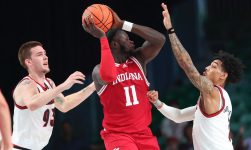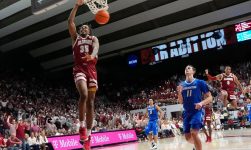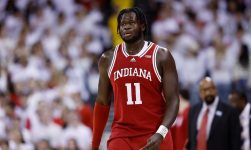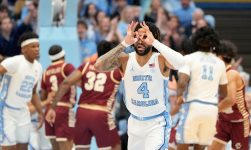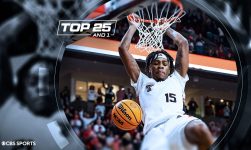In the most significant step toward college athlete unionization to date, the National Labor Relations Board on Thursday filed an unfair labor practice complaint against USC, the Pac-12 and the NCAA asking that athletes at the school be classified as employees.
A November hearing has been set before an administrative law judge in a case that could take years to decide. The charge calls for the parties to “cease and desist from misclassifying the players as non-employee ‘student-athletes.'” It further asks that those athletes be reclassified as “employees” in “handbooks and rules.”
The complaint comes after a February 2022 complaint from the National College Players Association (NCPA), which filed an unfair labor practice charge. A formal complaint means the NLRB has investigated the charge but failed in negotiations to settle it.
A complaint was largely expected after NLRB general counsel Jennifer Abruzzo issued a memo in September 2021 that explained why college athletes are classified as employees.
“It’s significant because it brings us one step closer to the unionization of college athletes,” said Gabe Feldman, a Tulane law professor and one of the leading voices nationally in sports law, of this step. “It’s significant because it suggests the [ruling] would apply not only to private schools but to public schools as well. Conferences and the NCAA would be [athletes’] joint employers.”
A unionization effort eight years ago by Northwestern football players only on athletes attending private schools. This is a much wider-ranging issue as the Pac-12 and NCAA are being labeled as those joint employers. Employee status could conceivably spread throughout the Pac-12 and beyond considering USC is moving to the Big Ten ahead of the 2024 season.
The charge is another blow against the collegiate model being vigorously defended by the NCAA. The association already faces two significant lawsuits involve athlete compensation — House v. NCAA and Johnson v. NCAA. A pending bill in California would allow athletes revenue-sharing privileges. NCAA president Charlie Baker and FBS commissioners have been continuously lobbying for a federal NIL bill on Capitol Hill.
“Because the looming decisions in [those cases], this just increases the likelihood that some external force is going to change college athletics,” Feldman said. “But it also strengthens the NCAA’s argument [that it] needs Congress to step in.”
As part of its evidence, the NLRB showed USC’s social media policy from the schools’ student-athlete handbook. In part, it reads:
Because the Internet can be accessed by anyone, it is recommended that student-athletes … do not post information—including photographs and text—and/or join “groups” that do not promote positive behavior. . . Inappropriate language, behavior or postings, as well as postings that violate NCAA rules, could lead to repercussions from the USC athletic department.
“Regular students aren’t subject to those types of policies. This goes to the ‘control’ issue by schools over college athletes,” said Michael Hsu, an athletes’ rights advocate and former University of Minnesota trustee.
In 2021, Hsu filed with the NLRB a misclassification labor charge against the NCAA. That charge was put on hold while the NLRB dealt with the NCPA charge. The NCPA charge was narrower because it included USC specifically.
USC has until June 1 to respond. The case could ultimately appealed all the way up to the Supreme Court, according to Feldman.

